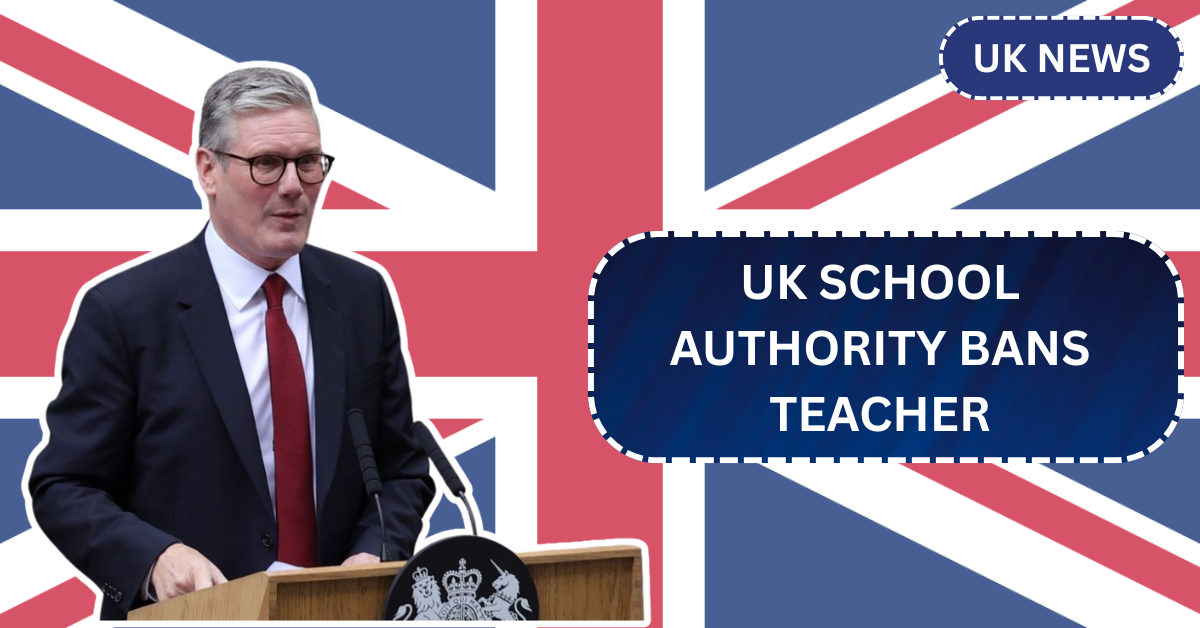A UK teacher has been officially banned from the classroom after she asked her students to sign a petition calling for the removal of their school’s headteacher. The decision came after a detailed investigation found her actions inappropriate and unprofessional, violating her responsibilities as an educator.
What Happened?
According to the Teaching Regulation Agency (TRA), this secondary school teacher, identified as Sarah MacDonald, took part in behavior that crossed professional boundaries. She was working at a school in Northumberland when she encouraged Year 10 and Year 11 students to join her effort to remove the school’s headteacher by signing a written petition.
It was revealed that she shared her opinions openly in class and also allowed students to express their dissatisfaction with the headteacher. The situation escalated when she circulated a petition during school hours and asked pupils to sign it. The document was reportedly passed around during class time, disrupting learning and creating an uncomfortable environment.
Why It Was Considered Serious
The TRA stated that involving students in internal staff matters is a clear violation of the teacher’s duty to maintain neutrality and professionalism. Teachers are expected to create a safe and focused environment for students—not pull them into school politics.
In their final decision, the regulatory body emphasized that Sarah MacDonald’s actions had the potential to damage the trust that schools place in teachers. Using her authority to influence pupils for personal or political gain was seen as unacceptable.
The panel mentioned that her decision to involve children in a disagreement with school leadership could have had serious emotional effects on those students. It also set a bad example for how to handle conflicts in a professional setting.
How the School and Authorities Responded
Once the school administration learned about the petition, they raised concerns. The issue was escalated to the local education authority, which then led to a formal investigation by the TRA.
During the investigation, MacDonald admitted to her involvement but stated she did not realize the seriousness of her actions at the time. She said her aim was to raise awareness among school management about staff dissatisfaction, and not to manipulate or harm students.
However, the TRA did not agree with her justification. They concluded that, even if her intentions were not malicious, the approach was wrong. Her failure to understand the consequences of dragging pupils into the issue showed a lack of judgment expected from someone in a teaching position.
Outcome: Permanent Ban from Teaching
After considering all the evidence, the panel decided to ban MacDonald from teaching in any school, sixth form college, or children’s home in England. She cannot apply to have the ban lifted until at least two years have passed, and only then under strict review.
The panel did take into account that she had no previous misconduct and had received some support from former colleagues. However, they found that the serious nature of the case required a firm decision to protect student welfare and maintain public trust in the education system.
Public Reaction and Discussion
The case has sparked debate online and among educators. Some believe the punishment was too harsh and that teachers should have more freedom to speak up about leadership issues. Others say the decision was fair, as students should never be involved in staff conflicts.
Education experts point out that teachers are in a position of great influence, especially over young people. Mixing personal issues with classroom duties can blur lines and affect the well-being of children.
One former headteacher commented, “There are always better ways to handle conflict within a school. You go through proper channels—HR, union support, or formal grievance procedures. Involving children crosses a line.”
Final Thoughts
This incident serves as a reminder that educators carry a big responsibility—not just to teach, but also to uphold high ethical standards. While staff may have concerns about leadership, the way those concerns are raised matters a lot.
The classroom is not a place for politics or petitions. It is meant to be a safe and stable environment for learning. The TRA’s decision, although tough, aims to reinforce the importance of keeping student spaces free from adult disputes and preserving trust in the education system.




